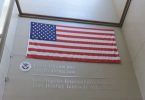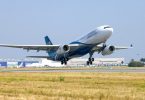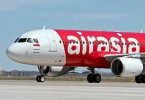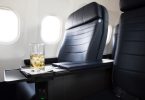BELLEVUE, WA. – The results of the 2013 Airplane Etiquette Study were released today. Northstar surveyed 1,001 adult Americans to rank and respond to a range of in-flight behaviors, from seat-reclining and seat-swapping to drinking, eating and canoodling.
“Planes are flying full, and the holiday season is traditionally hectic, so in-flight etiquette is at a premium,” said John Morrey, vice president and general manager, Expedia.com. “Most of us, when we look at the list of offending behaviors, can admit to having committed one or more of the violations. So this season, perhaps we can all take care to be as friendly and accommodating to our fellow passengers as possible. After all, we’re quite literally all in this together.”
The study found that “Inattentive Parents” (41%) and “Rear Seat Kickers” (38%) ranked first and second on the list of “Most Annoying / Offensive Airplane Etiquette Violators.” Americans with children under 18 were slightly more sympathetic, ranking Rear Seat Kickers slightly higher, while Americans without children had less sympathy. The “Aromatic Passenger” ranked third on the list of violators, at 28%, edging “The Boozer” (26%) and “Chatty Cathy” (23%).
Sixty-three percent of American travelers surveyed “often feel annoyed” at parents traveling with loud children, so much so that 49% of Americans would pay extra to be seated in a designated “quiet zone,” should airlines elect to create one. A full 59% of Americans aged 34 and under would pay for this service.
The wailing of children is by no means the only noise that sets fellow passengers on edge: talkative fellow passengers inspire “dread” in 73% of Americans. Eighty-five percent of travelers agree that “a little small talk” is acceptable, but ultimately prefer to keep to themselves. Despite this, more than one-third (34%) of Americans reported they “often use flights as an opportunity to talk to and meet new people.”
The Mile High Club is Packed
Ten percent of Americans report having “been intimate” with someone on a plane. “The Amorous” passenger ranks #15 on the list of worst etiquette offenders. On the whole, Americans prefer that their fellow passengers remain dressed while in flight; “The Undresser” (defined as someone who removes shoes, socks or too many layers of clothing) ranks 17th on the list of offensive passengers.
The full list of “Most Annoying / Offensive Airplane Etiquette Violators” follows:
1. Inattentive Parents
41%
2. Rear Seat Kicker
38%
3. The Aromatic Passenger
28%
4. The Boozer
26%
5. Chatty Cathy
23%
6. Audio Insensitive
19%
7. Seat-back Guy
13%
8. Carry-on Baggage Offenders
13%
9. The Back-Seat Grabber
12%
10. The Queue Jumper
12%
11. The Armrest Hog
11%
12. Mad Bladder*
11%
13. Pungent Food Eaters
9%
14. The Mad Dasher**
9%
15. The Amorous
9%
16. Overhead Bin Inconsiderate
9%
17. The Undresser
9%
18. The Pre-Boarder***
6%
19. The Seat Switcher
5%
The Great Seat-Back Debate
“Seat Back Guy,” defined as the passenger who reclines his seat fully once the plane has left the ground, ranks #7 on the list of travel-etiquette offenders. Thirty-five percent of Americans report having experienced “major discomfort” due to a reclining seat, and 42% would like to see reclining seats banned entirely, or at least restricted on short-haul flights.
Despite this, 80% of travelers admit to reclining their seats during flights. Forty-one percent admit to reclining when they sleep, while 38% do so when their flight is three hours or longer. Just under one in five (18%) recline immediately after take-off, while 15% do so once meal service is complete, and another 15% do so whenever the passenger in front of them reclines.
Seventeen percent of Americans admitted that they would recline their seats even if the passenger behind them was noticeably pregnant; 23% would do so if the passenger was elderly or frail; while 36% would do so even if the passenger was particularly tall. Forty-five percent of Americans give no warning when reclining, while 22% do warn their neighbors (but do not ask permission) and 33% ask permission.
Additional findings from Expedia’s 2013 Airplane Etiquette Study include:
15% admit to boarding their flight before their row or zone is called.
39% of Americans cannot sleep on a plane.
30% of Americans have asked to switch seats with a fellow passenger so they could sit with a friend, colleague or loved one who was not a child.
10% have ignored the airline’s carry-on baggage rules entirely.
10% have tweeted at an airline mid-trip in the hopes of getting a response in their favor.
19% stow their luggage in the first available overhead spot, rather than waiting for the spot nearest their seat.
38% believe that whoever sits first is entitled to claim whichever armrest they choose, while 28% feel that the person seated in the middle should be entitled to both armrests.
22% consume more than two alcoholic drinks during air travel, including at the airport and on board the plane.
Despite these findings, most Americans feel warmly about their fellow passengers. 84% of passengers agree with the statement: “For the most part, fellow flight passengers are considerate of other passengers.”
* “Mad Bladder” refers to the window-seat passenger who makes frequent bathroom visits.
** “The Mad Dasher” is the passenger who jumps up the moment the plane reaches the gate, leaning on the chair-back in front of him while waiting anxiously for the plane door to open.
*** “The Pre-Boarder” is one who boards before his assigned zone or row is called.






















